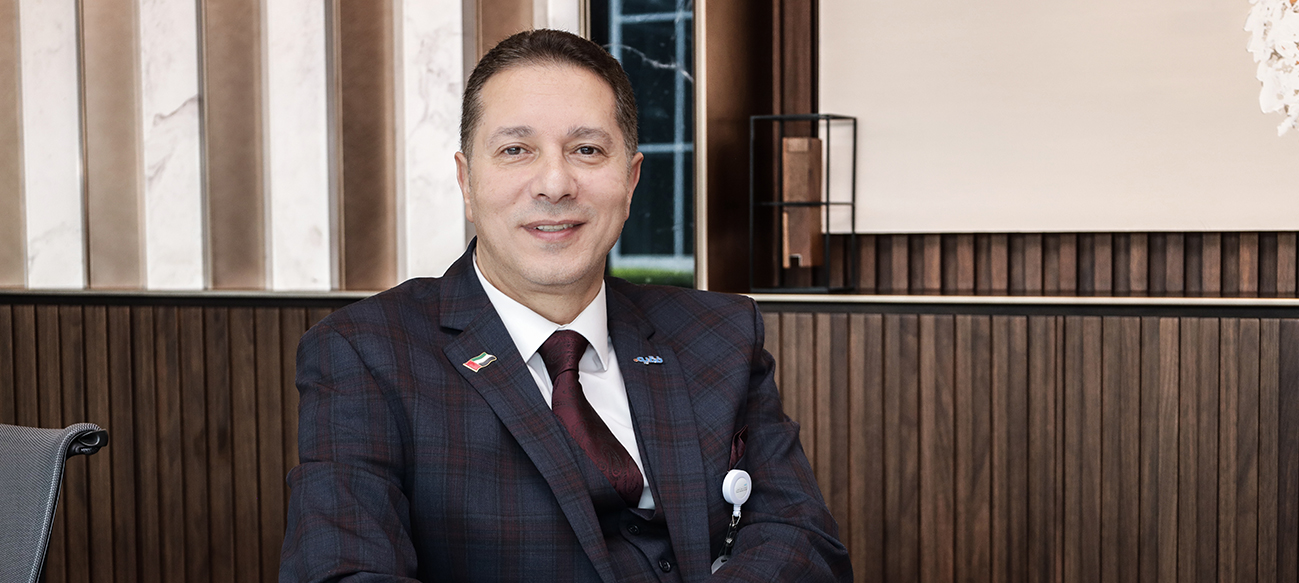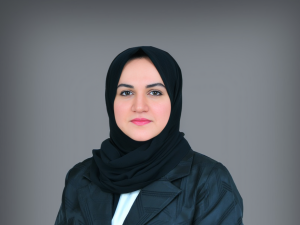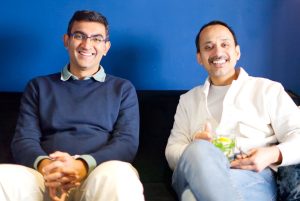“Fakeeh distinguishes itself as an integrated healthcare delivery model, providing not only medical services but also education and research while leveraging advanced technology.”
– Dr. Mohaymen Abdelghany, CEO of Fakeeh University Hospital
Across the globe, a silent revolution is unfolding. The lines between hospitals and tech havens are blurring, as patient care embraces the transformative power of digitization. From AI-powered diagnosis to cloud-based medical records, this digital wave promises to streamline processes, unlock unprecedented medical insights, and redefine the very meaning of accessible healthcare.
By Mohammed Irshad
Fueled by a relentless drive to rewrite the healthcare narrative, Fakeeh University Hospital (FUH) paints a vibrant canvas of innovation under the brushstrokes of Dr. Mohaymen Abdelghany, its Chief Executive Officer (CEO). Here, healthcare isn’t merely dispensed, it’s orchestrated – a seamless harmony of human expertise and technological finesse. Patient care transforms into a bespoke journey, where cutting-edge tools whisper insights only AI can hear, and where compassion remains the empathetic conductor, ensuring every step in this journey feels the rhythm of healing with every beat.
In an exclusive interview with Mediworld, Dr. Abdelghany unlocks the treasure chest of FUH’s pioneering spirit. Together, we’ll explore how they pioneer digitalization efforts within the Middle East, navigate the challenges of integrating technology into established healthcare systems, and ultimately, lead the way for a future where personalized medicine and remote expertise become the norm.
FUH’s Academic Healthcare Journey
Dr. Abdelghany sets the stage by providing insights into FUH’s unique position as an academic healthcare institution. With a distinguished career spanning two decades, He expresses his privilege in leading FUH and emphasizes the hospital’s roots in a larger Saudi Arabian healthcare group with a remarkable 47-year legacy.
“Fakeeh distinguishes itself as an integrated healthcare delivery model,” Dr. Abdelghany shares. He highlights the hospital’s role in providing not only medical services but also education and research while leveraging advanced technology. FUH’s journey, beginning in late 2020, unfolds in Dubai Silicon Oasis—a strategic location symbolizing the future innovation hub for the entire UAE.
“The flagship has been there for 47 years in Jeddah Flagship Hospital, and it’s one of the largest healthcare providers in the kingdom of Saudi Arabia with so many achievements as the first in the region,” Dr. Abdelghany proudly states.
The hospital’s integration into the dynamic landscape of Dubai Silicon Oasis is not merely geographical but also thematic. He elaborates on how FUH’s academic healthcare model aligns with the futuristic ambitions of the region, providing not just medical services but contributing significantly to education, research, and technological advancements.
“Fakeeh is part of a larger group in Saudi Arabia, which is more than four decades old,” Dr. Abdelghany explains. “It’s an integrated care model where we provide healthcare services, education, research, and enable that with the technology platform.”
Clinical Workflows and Health Information Exchange
As the conversation progresses, Dr. Abdelghany stresses the challenges faced by healthcare providers—particularly the burden of paperwork and manual processes in clinical workflows. With a forward-looking perspective, he unveils the role of health information exchanges (HIEs) in transforming these workflows.
“The health information exchange of Dubai is working very well,” Dr. Abdelghany notes, emphasizing its success in providing clinicians with seamless access to patient information. This not only reduces the time required for diagnosis but also ensures that patients receive more efficient and informed care.
Dr. Abdelghany eloquently describes how HIEs have become the backbone of FUH’s operations, allowing for a more connected and efficient healthcare ecosystem. He details how the seamless exchange of health information has become a linchpin in delivering patient-centric care, minimizing redundancy in diagnostic procedures, and expediting treatment plans.
Further emphasizing the impact of HIEs, He discusses the positive outcomes on patient outcomes. By having comprehensive access to a patient’s medical history, healthcare providers at FUH are empowered to make more informed decisions, leading to enhanced care quality and improved patient satisfaction.
The Digitalization Surge and Impact on Patient Care
Shifting the focus to the broader landscape of healthcare digitization, Dr. Abdelghany reflects on the transformative impact of digital tools, especially during the COVID-19 pandemic. He narrates how telehealth and teleconsultation, once met with skepticism, gained widespread acceptance during the pandemic, enhancing patient access to timely medical advice and medication delivery.
The conversation evolves into a discussion on how digitization has significantly improved patient experiences. Dr. Abdelghany elucidates,“Patients can benefit greatly from connecting all their medical information. They have access to reports, lab results, and can even schedule appointments seamlessly.” This, he believes, not only empowers patients but also enhances the overall patient experience.
Dr. Abdelghany weaves an insightful narrative about the hospital’s embrace of digital tools beyond the conventional realms of healthcare. He details how FUH has integrated telemedicine and other digital platforms into its patient care model, ensuring a holistic and patient-centric approach.
The discussion extends to the broader societal impact of digitization on healthcare. He emphasizes how the acceptance of telehealth during the pandemic has transformed the perception of digital healthcare solutions. Patients, initially hesitant, now actively engage with these platforms, leading to a more connected and informed healthcare community.
Data-Driven Precision Medicine
As the interview progresses, Dr. Abdelghany unveils his visionary perspective on the future of
healthcare—precision medicine. He anticipates a future where healthcare is not a one-size-fits-all approach, but a personalized, precise science based on individual genomic profiles.
“The more data we collect from electronic medical records and genomics, the more we can customize and individualized healthcare plans,” Dr. Abdelghany asserts. He envisions a future where the dosing of medications and interventions are tailored to individuals, propelled by the integration of artificial intelligence tools.
His words are not just informative but also forward-looking. He discusses ongoing initiatives at
FUH is related to genomics, emphasizing the hospital’s commitment to staying at the forefront of medical advancements. The integration of AI tools, Dr. Abdelghany stresses, is not just a possibility but an imminent reality that will redefine healthcare delivery.
Expanding on the genomics aspect, He draws attention to the potential societal impact. He discusses the implications of a data-rich healthcare environment, where genomic data, coupled with electronic medical records, opens new avenues for personalized medicine. The vision, he notes, is not just about treating illnesses but proactively preventing them based on individual genetic predispositions.
Strategic Expansion Plans and Digital Transformation Initiatives
With the groundwork laid for the transformative role of digitization in healthcare, the conversation shifts to Fakeeh University Hospital’s strategic expansion plans. Dr. Abdelghany unveils an ambitious growth trajectory, both within the UAE and across the Middle East,









